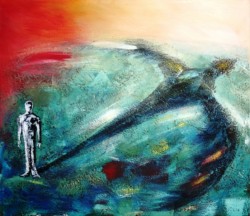Lukes and invisible power
 Steven Lukes referred to this as ‘the most insidious use of power’ because it keeps conflict from emerging in the first place. In this form of power, A ‘exercises power over [B] by influencing, shaping or determining his[/her] very wants’ (Lukes 2005, 27), through indoctrination, acculturation and socialization. Hinson and Healey (2003, 4) further write that ‘[Invisible power] is exercised in part through control of the institutions that shape and create meaning: religious institutions, the media, television, mass consumer culture, popular ideas about government and about workers and bosses, etc.’ Status quo power relations are reinforced by the fact that most of us experience powerlessness as part of everyday life. The experience of being shut out of decision-making processes gets internalized and understood as the ‘natural state’ of things. Consider the following reflections on powerlessness from Sandra Hinson and Richard Healey (2003: 5):
Steven Lukes referred to this as ‘the most insidious use of power’ because it keeps conflict from emerging in the first place. In this form of power, A ‘exercises power over [B] by influencing, shaping or determining his[/her] very wants’ (Lukes 2005, 27), through indoctrination, acculturation and socialization. Hinson and Healey (2003, 4) further write that ‘[Invisible power] is exercised in part through control of the institutions that shape and create meaning: religious institutions, the media, television, mass consumer culture, popular ideas about government and about workers and bosses, etc.’ Status quo power relations are reinforced by the fact that most of us experience powerlessness as part of everyday life. The experience of being shut out of decision-making processes gets internalized and understood as the ‘natural state’ of things. Consider the following reflections on powerlessness from Sandra Hinson and Richard Healey (2003: 5):
‘When those who have the power to name and to socially construct reality choose not to see you or hear you … when someone with the authority of a teacher, say, describes the world and you are not in it, there is a moment of psychic disequilibrium, as if you looked in the mirror and saw nothing. It takes some strength of soul — and not just individual strength but collective understanding — to resist this void, this non-being, into which you are thrust, and to stand up, demanding to be seen and heard.’
References for further reading
Hinson, Sandra and Healey, Richard (2003) ‘Building Political Power’, prepared for the State Strategies Fund Convening, Grassroots Policy Project.
Lukes, Stephen (2004) Power: A Radical View, Palgrave Macmillian (2nd edition first published in 1974)

